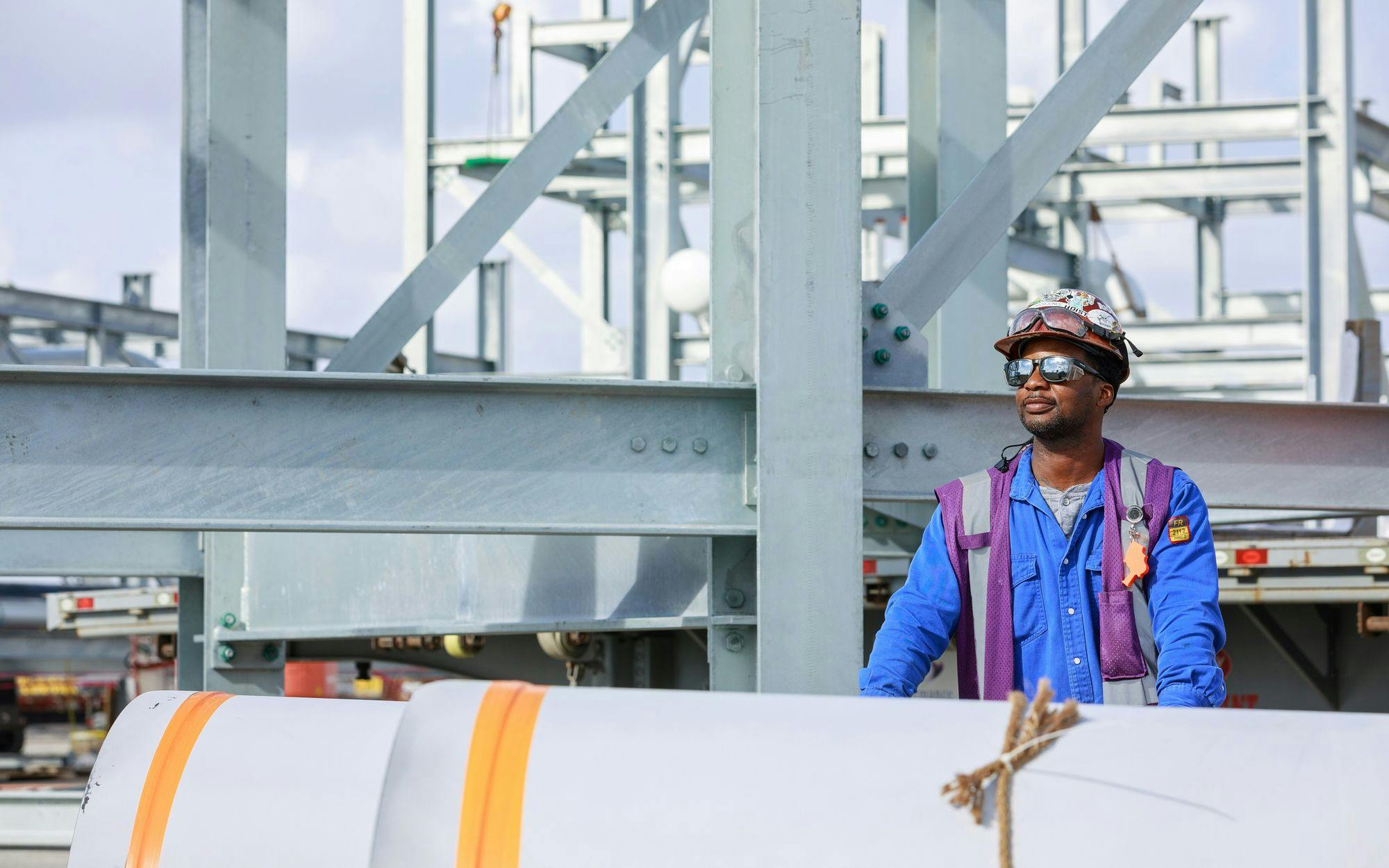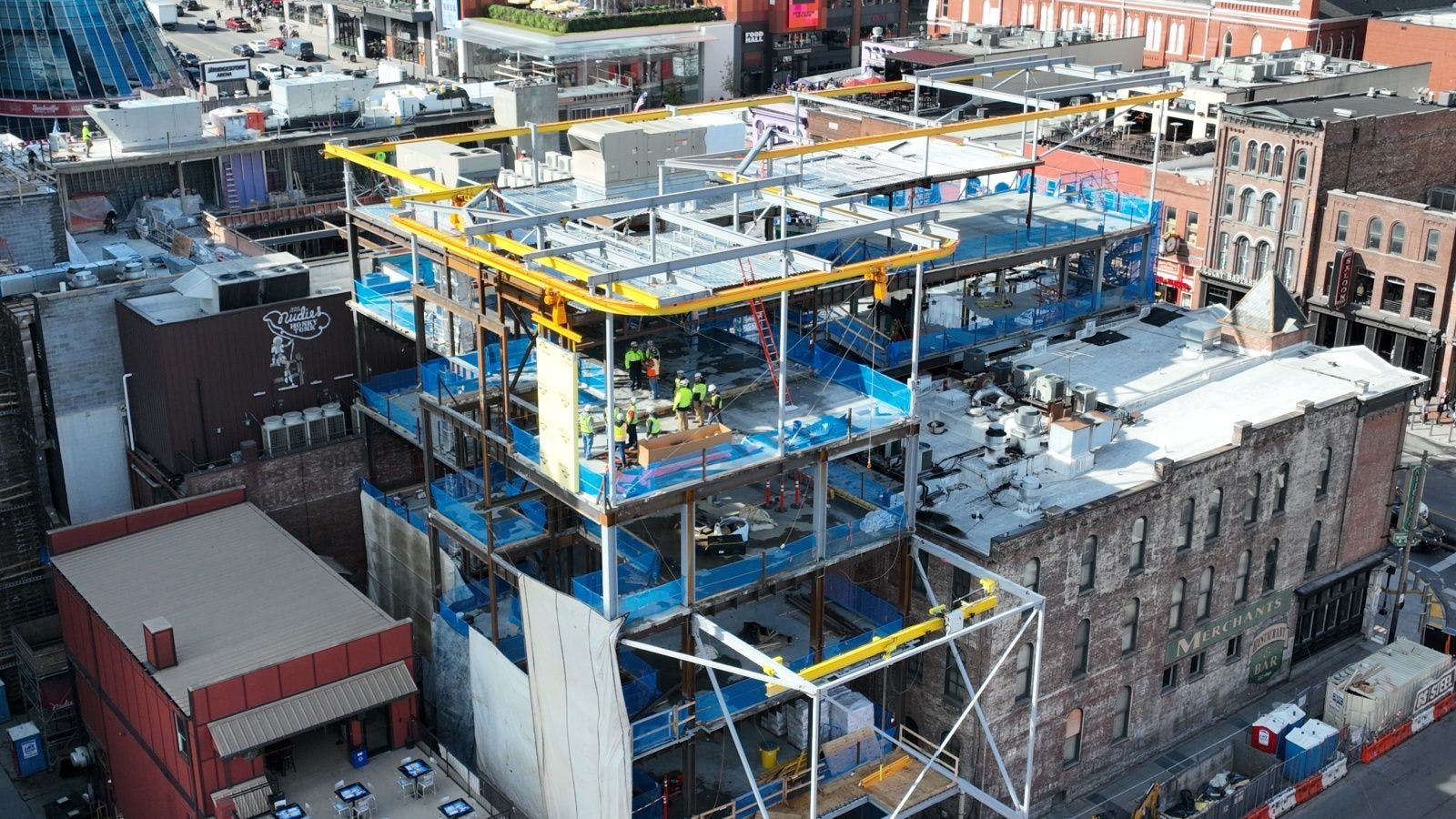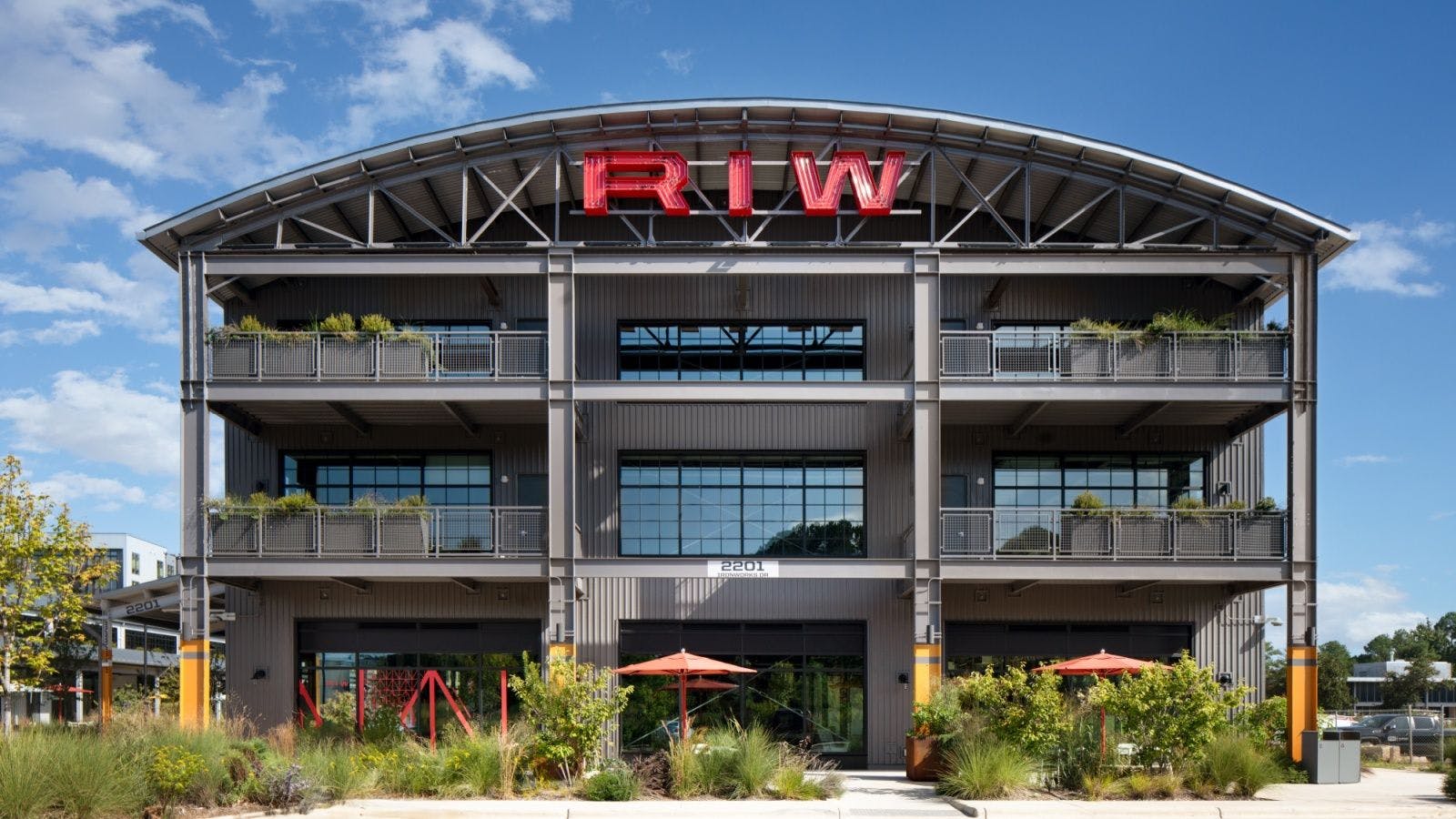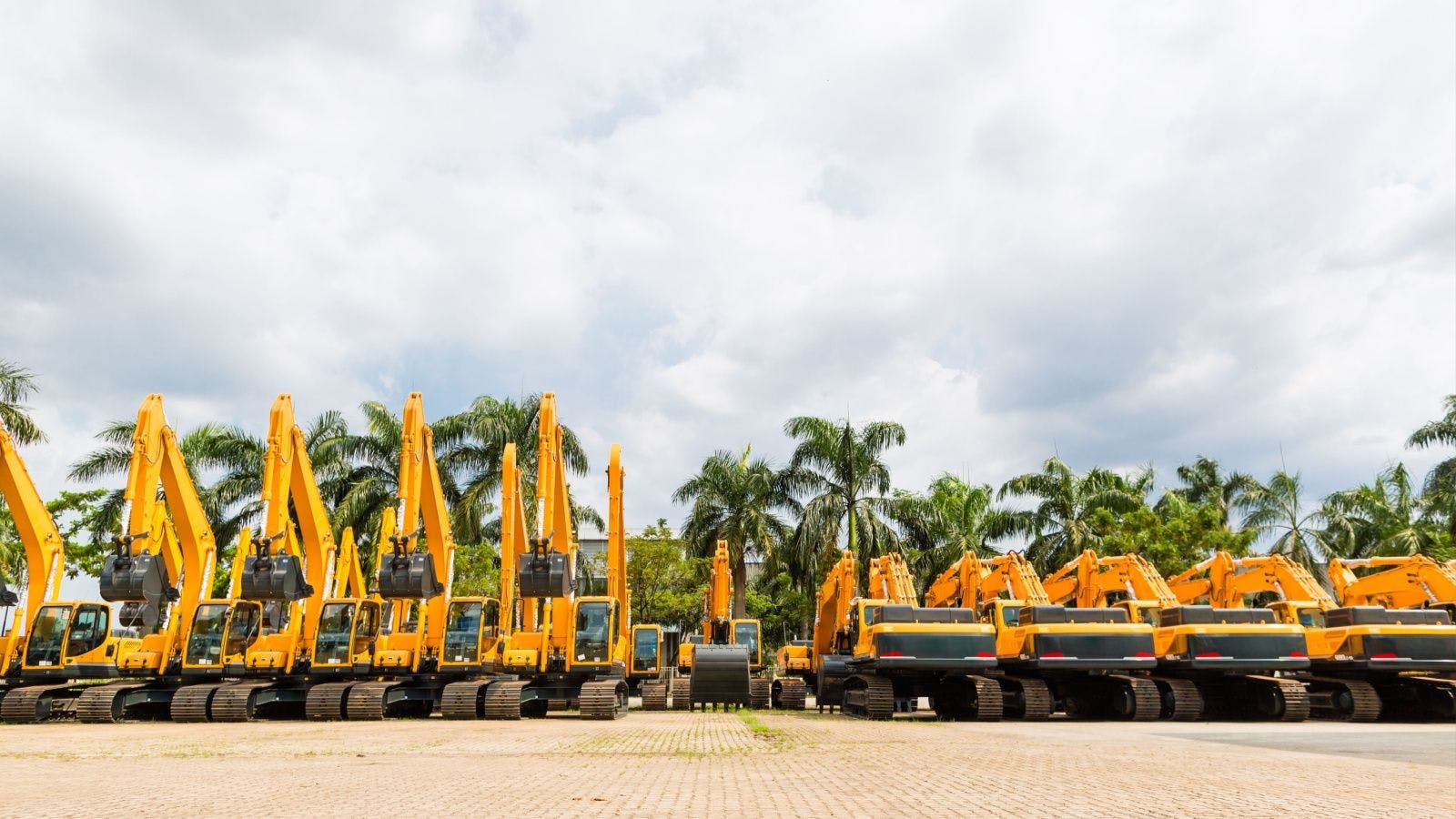
Industrial Revolution: ABC's 2023 Contractor of the Year
Photos by Collin Richie Photography.
When did Art Favre realize that Performance Contractors had really, truly made it?
It was the mid-1990s. Performance, an industrial contractor based in Baton Rouge, wasn’t quite 20 years old and was still making its name working on smaller projects around the region. Then, the company landed a big job with Dow, building an ethylene propylene diene terpolymer (EPDM) manufacturing facility at the chemical giant’s petrochemical complex across the Mississippi River in Plaquemine, Louisiana.
It was the largest single project by far that Performance had ever worked on. “The job was larger than our annual volume at the time, or somewhere close to it,” says Art Favre, Performance’s co-founder and chair. “But that job was very, very successful. It was a little over a year’s project, but it was a big steppingstone for the company. It put us on the map as not just a company that does small jobs. From that point forward, we stepped up a notch in the whole industrial-contracting community.
Nearly 45 years after its founding, Performance is still stepping up, most recently being named the ABC 2023 Contractor of the Year—an honor that is sponsored by Travelers and that was presented during the National Excellence in Construction® Awards Gala at ABC Convention last month. “It’s a very humbling experience to think that a group of your peers throughout the country have picked you for this esteemed award,” Favre says. “There are a lot of good contractors out there—I mean, just in Louisiana, we’ve got something like 25,000 that have a contractor’s license—so to get to this level is pretty phenomenal. It’s something I’m very proud of.”
WAY DOWN IN LOUISIANA
Performance can trace its beginning to 1976, which isn’t the year the company was founded but rather when Louisiana passed its first right-to-work legislation. Favre had graduated from Louisiana State University (LSU) with a degree in construction management in 1972—a member of the program’s first graduating class—and was working for an industrial contractor in Baton Rouge. A native of Gulfport, Mississippi, Favre figured out fairly early what he wanted to do with his life. His father served with the U.S. Naval Construction Battalions (the Seabees) during World War II, and Favre himself did work for a friend’s home-builder father throughout high school. “I found it really interesting to see something start as a flat piece of ground,” Favre says, “and next thing you know, there’s a building there.”
Like most of Louisiana’s construction industry at the time, the contractor that Favre worked for was a union shop. But when the state opened the door to the merit shop, Favre saw a “golden opportunity.” In 1979, he and a business partner, Ron White, started Performance—with the idea of taking everything they already knew about planning, management, operations and technology, and combining all that with “the productivity that you get from the merit-shop-trained workforce.” Including Favre and White, the company had three employees (they hired an administrative assistant) and, in those early days, a series of “really small, lump-sum jobs.”
Not having much in the way of overhead made Performance lean and competitive; clients kept coming back, and over time the jobs became less small. “It was a fun experience,” Favre says. “Those first few years weren’t real easy. We basically had to do everything ourselves, from bidding the work to paying the bills, payroll and tax deposits, and everything else that goes with running a company. So, we learned a lot, and it gave us a good, strong, diverse foundation to build a company going forward.”
During an interview with Construction Executive, Favre sits in an elegant conference room at Performance’s headquarters campus—15 acres in southern Baton Rouge, with another six acres across the street, all housing three office buildings, a fabrication shop, a supply yard, assessment and training facilities and more. With Favre is Kevin Courville, the company’s president and chief executive officer, whose father was in construction, and who first worked for Performance as a coop student in LSU’s construction management program. Courville left Baton Rouge after graduating in the mid-1980s—“I grew up here,” he says, “and decided I really wanted to get out and see the world”—then returned in 1993 to rejoin Performance as a project manager.
“I’ve been here since,” Courville says. “I moved my way up from project manager to project executive, vice president and executive vice president. Then, two years ago, Art got a promotion to chairman of the board, and I got a promotion to president and CEO.” Courville turns to Favre and, with mock sincerity, says: “Thank you for that promotion.”
Favre gives a quiet laugh, perfectly capturing the friendly, relaxed dynamic he enjoys with Courville and that seems to permeate Performance’s organizational culture. “Family” is a word that comes up a lot in conversations with employees at every level of the company. (See “It’s All Relative,” p. 17.) “Our success has 100% been because of the people we’ve surrounded ourselves with,” Favre says. “We put a lot of effort into hiring the best people that we can find for whatever the position is, and then we invest a lot in our people. We take care of them.”
EXPANSION PROJECTS
In addition to the sprawling headquarters campus in Baton Rouge, Performance has two modular-assembly yards in Louisiana—a 72-acre facility about 15 miles away in Port Allen, on the other side of the Mississippi, and a larger site farther downstate, in Morgan City, with both offering access to the river and the Intracoastal Waterway. The company also has regional offices in Lake Charles, Louisiana; Houston and Corpus Christi, Texas; and Mobile, Alabama, and satellite offices in Indiana and North Carolina. Its workforce hovers between 8,000 and 10,000 people, with $1.5 billion in annual business. At the moment, Performance is working on about 80 different projects for 60 customers in 15 states.
Throughout its growth, Performance has remained focused on industrial contracting—while taking an adaptive approach to what constitutes that. “We decided, okay, we’re going to stay with our industrial customers,” Courville says, “but what’s expanded and grown us is, we’re doing more of what an industrial project ‘is.’ We’ve become much better at the civil side of the business. We’ve taken projects from coming out of the ground all the way through startup. As opposed to being considered more of a mechanical contractor, now we’re more of a general industrial contractor.”
Performance’s portfolio has evolved accordingly. Red-meat industrial clients such as Dow, BASF, ExxonMobil, Valero and Chevron have been joined by Intel and SpaceX, along with projects in the life-sciences, pharmaceutical and food-and-beverage sectors. Performance has built an eggroll plant in Texas and is preparing to work on a pet-food plant in Ohio. Some of this is new and different, but then, for Favre, that’s always been the case. “Even if you just start with the chemical plants, I’ve never seen two projects that were the same. That’s intriguing to me,” he says. “You use a lot of the same systems and procedures, but there are no two projects that are alike.”
Asking any of Performance’s executive team to name their favorite project goes about as well as you’d expect—yes, it’s just like asking them to name their favorite child—but with some prodding, they tend to identify those jobs that have leveled up the company. Favre goes with the Dow project that doubled Performance’s business in the ’90s. “I remember we had a meeting of all of our superintendents,” Favre says, “and we said, ‘We just got this job and it’s going to stress everybody, because we’ve got to do this job, plus we’ve got to continue doing everything else we’re doing.’”
Courville points to a $300-million natural-gas processing plant in Colorado’s Piceance Basin whose construction Enterprise Products Partners asked Performance to take over from another company in 2007. “We’d never done a project in the state of Colorado,” he says, “and we took over about 2,000 people” who had been working for the previous contractor. Then there’s Performance’s first true megaproject—working on the $3.7-billion expansion of Marathon Petroleum’s Garyville, Louisiana, refinery, which was completed in 2009. “They said ‘expansion,’ but it was building a new refinery outside of an existing refinery,” Courville says. “Basically doubling the size, and we had the largest piece of it.”
Another member of the team, Chief Operating Officer Christian Fast, selects a $2-billion expansion of CF Industries’ fertilizer plant in Port Neal, Iowa. Completed in 2016, it was the largest construction contract in Performance’s history. Fast, who joined the company as an estimator immediately after completing LSU’s construction management program 22 years ago and never left, served as project manager. “Being on a large project like that, bringing a Gulf Coast workforce to work in a snowy, icy, freezing-cold environment for three years, brought some new challenges,” Fast says. “That’s what it’s all about in construction—challenging yourself, raising the bar. How can we bring what we’ve done on other projects into an environment that’s a little different and make it a success?”
The key for Favre is that all of Performance’s growth has been organic, with no mergers or acquisitions. “We’re not aggressive with our sales efforts,” he says. “We’re probably more aggressive today than we’ve ever been, but with most of our clients, we started off with real, real small jobs, and then that company would see that we were doing something good, so they kept giving us bigger and bigger jobs. We’d pick up a few more customers each year. We’re not a company that sets corporate sales goals every year. We analyze the business that’s out there and what we see from talking with our customers, and we get a feel for what we think it might be.”
‘WE BUILD BETTER’
The Contractor of the Year honor is presented to a company—selected by the ABC National Executive Committee—that is committed to ABC’s mission and values, including safety, quality, workforce development, community engagement, advocacy and the merit-shop philosophy. Performance scores high marks in all those areas, including as an ABC Top Performer, an ABC Accredited Quality Contractor, a regular winner in ABC’s National Excellence in Construction® Awards program and a recipient of Diamond-level recognition from ABC’s STEP Safety Management System. Employees have served on a variety of ABC national committees, and in 2020, Strategic Development Manager Brandon Mabile was named Young Professional of the Year as part of ABC’s Construction Workforce Awards; today Mabile serves on the National Executive Committee. The company is a member of 10 ABC chapters, with Performance people serving on the boards of directors of three of them, while more than 300 employees are enrolled in ABC craft-training programs; employees also serve in leadership roles at numerous ABC craft-training centers.
Identifying, nurturing and maintaining a cutting-edge workforce has always been a top priority for Performance, an NCCER-accredited training center whose motto, “We build better,” doesn’t just refer to construction projects. “These talented people we hire every day, we’ve got to give them an avenue to be able to grow their career,” Courville says. “Not just from a standpoint of executive leadership—how does a craft employee get to be a foreman, get to be a general foreman, get to be a superintendent and get all the way up to construction manager or senior construction manager?”
Training and education are constant. Onsite project managers get a video from Performance’s Field Leadership Initiative Program (FLIP) every two weeks—written and produced in-house. Another in-house leadership-training program called Skill Force is also mandatory, combining computer-based education with classroom instruction. And customized skill assessment and training happens continuously on each jobsite—which Performance staffs in part thanks to a robust pipeline effort that takes the company into high schools, community colleges, military bases and universities around the Gulf Coast.
“It’s not just, ‘You need to come to construction to be a carpenter or a welder or a pipefitter,’” Favre says. “Instead, it’s, ‘Let me tell you about the career opportunities in construction.’ Even though we’re living in an industrial corridor up and down the Mississippi River, the typical high-school kid doesn’t know what we do. They might see people building houses, but they don’t get what it takes to build a process unit in a chemical plant.”
Everything that Performance does around talent development is tied to communicating “what the expectations are and what makes us different,” Courville says. “Because the value proposition at the end of the day is customer satisfaction.”
The number of 40-year clients that the company maintains suggests that the word has gotten out. But the value proposition applies within the company as well—“We share a lot of our corporate profits back in the form of bonuses to our staff,” Favre says, “so virtually everybody gets something”—and also extends to the communities where Performance operates. Performance Strong is a program that allows regional offices to pick local charities to support, with the company matching employee donations; over the past two years, Performance Strong has raised $275,000. Favre is the immediate past board chair for Baton Rouge’s Mary Bird Perkins Cancer Center and has endowed a chair in industrial construction at LSU. Performance employees serve on construction advisory committees not just at LSU but also at Texas A&M, Auburn and Southeastern Louisiana universities.
Returning to the company slogan, Courville notes: “It’s not just, ‘We build better projects.’ We build better communities. We get involved, and our people get involved to give back to the communities.” Fast adds: “It’s just different here. I don’t know of any other company that has quite the family culture that we have. Certainly not a company of this size.”
It’s a culture that has not just survived but flourished as Performance has grown from 3 to 10,000 employees and from 5- to 10-figure jobs. And there are no plans to stop. As Favre notes, the company is debt-free, owns all its equipment and has “the horsepower from a people standpoint.” With some clients, he says, Performance is now discussing “not projects, but programs of work”—meaning getting involved earlier in the planning process for multiple projects over a course of years or even decades. “It’s an interesting concept and one we’ve never been involved in,” Favre says. “We’re looking at multiple projects in multiple locations for one owner and trying to work out the synergies of how we can most economically build everything for them and meet the schedules to where they actually end up saving money.
“We’re a $1.5-billion company today, and I don’t like to make projections,” Favre says, then adds with characteristic understatement: “But I would say that the company has the potential to significantly grow over the next 10 to 20 years.”
Chris leads Construction Executive’s day-to-day operations—overseeing all print and digital content, design and production efforts, and working with the editorial team to tell the many stories of America’s builders and contractors. An experienced association magazine editor, writer and publications strategist, he is a graduate of Saint Joseph’s University and lives in Arlington, Virginia.
Related stories








